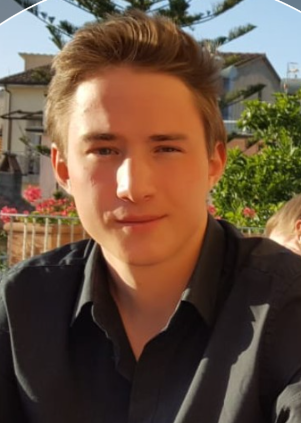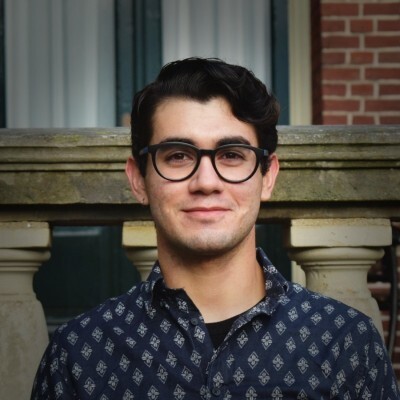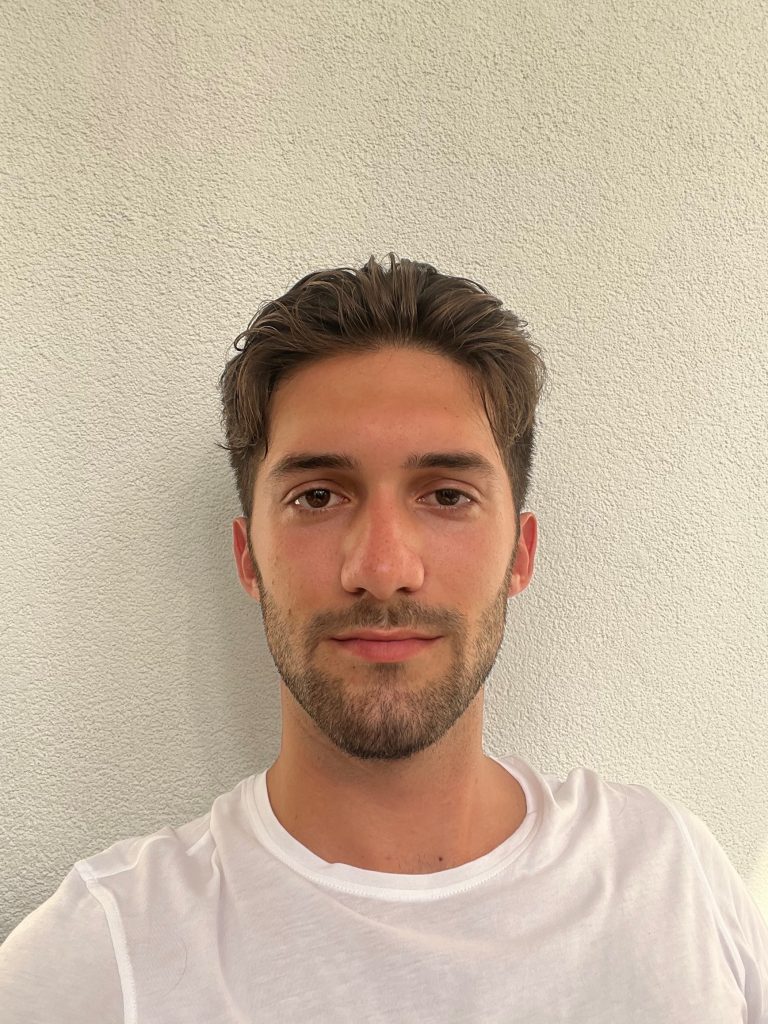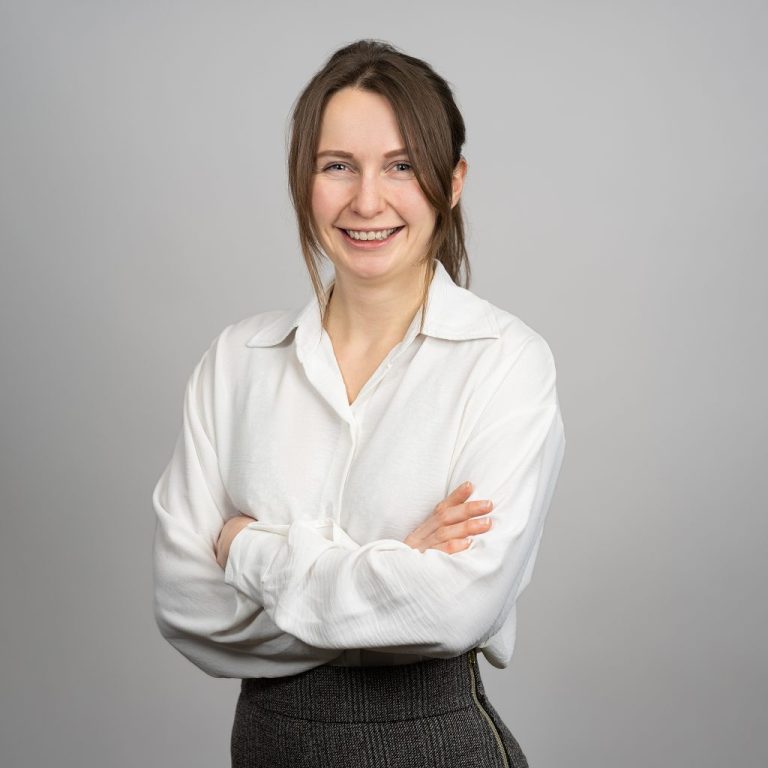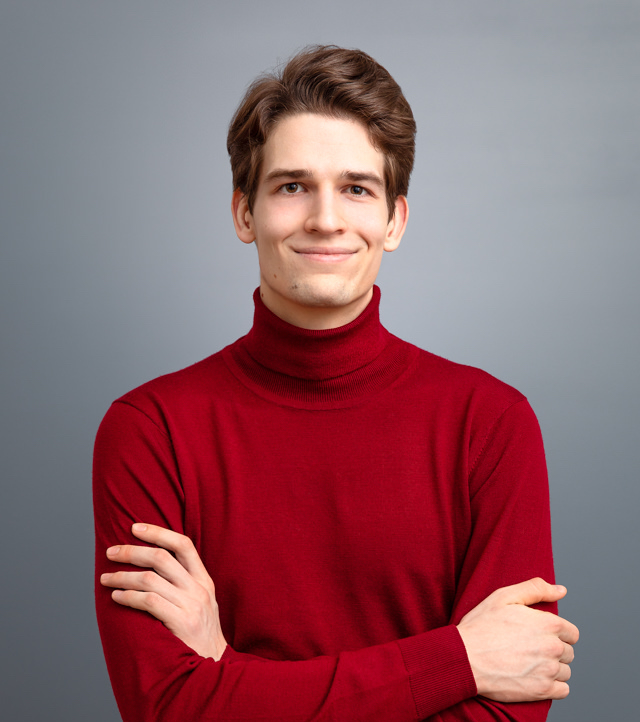David Frühbuss
Thesis project title: Cancer Immunotherapy Design with Geometric Deep Learning
Supervisors:
– Dr. Erik Bekkers (ELLIS Member, University of Amsterdam)
– Prof. Dr. Li Xue (Radboud University)
– Prof. Dr Stefanie Jegelka (ELLIS Member, TUM München)
Research Summary:
The main goal of this thesis is to build models that can predict whether a molecule is likely to bind with a certain protein based on their joint predicted 3D structure. David and his supervisors focus on peptides and a specific protein called Major histocompatibility complex (MHC). Next to T-Cells, this protein is the most important component in the body’s immune response to cancer cells. Being able to reliably predict which peptides bind well to this protein would enable new and improve existing cancer therapies.
MSc Honours Opportunity:
The ELLIS Honours programme gives me the unique opportunity to work with two of the best researchers in Geometric Deep Learning. Together with Li Xue, who is an expert in applying AI to cancer research, this combination of expertise allows us to push what is possible in designing cures for various forms of cancer. In my upcoming research visit to the Jegelka Lab and through the ELLIS network in general I hope to foster many research connections across Europe, which will hopefully allow me to further pursue research like this in the future.
Diego Garcia Cerdas
Thesis project title: Data-driven exploration of selectivity in the human visual cortex using diffusion models
Supervisors:
– Dr. Iris Groen (ELLIS Member, University of Amsterdam)
– Prof. Dr. Gemma Roig (ELLIS Member, Goethe University Frankfurt)
– Dr. Pascal Mettes (ELLIS Member, University of Amsterdam)
– MSc Christina Sartzetaki (University of Amsterdam)
Research Summary:
The availability of large-scale neuroimaging datasets has opened new possibilities for studying the brain in a data-driven manner. By analyzing brain responses to thousands of naturalistic image and video stimuli, it is possible to discover cortical organization properties possibly overlooked by previous hypothesis-driven research. These properties comprise, for example, regions in the higher visual cortex that are selectively engaged in perceiving certain objects like faces, bodies, places, words, or food.
This thesis project explores how one can visually understand the properties suggested by these large datasets using deep generative models. Particularly, diffusion models can be used to generate stimuli that are predicted to maximally activate a targeted brain region. However, the fidelity of these results will depend on the type of representation we extract from the stimuli to predict brain activations. Therefore, a systematic study of different design choices is needed before one can extract relevant and truthful conclusions from the data.
MSc Honours Opportunity:
Pursuing the MSc Honours programme has been a great justification for challenging myself and exploring the implications of AI in broader research areas. Most importantly, I have been able to do so with the close guidance of excellent professors and PhD students at the UvA. I am excited to visit Goethe University Frankfurt in the coming months, and I expect it to be an enriching experience both personally and professionally. I am confident that the results of this Honours programme will open many possibilities and prepare me for pursuing a PhD after my Masters.
Veljko Kovac
Thesis project title: Higher Order Graph Neural Networks
Supervisors:
– Dr. Erik Bekkers (ELLIS Member, University of Amsterdam)
– Prof. Dr. Pietro Liò (Ellis Member, University of Cambridge)
– Dr. Petar Veličković (ELLIS Scholar, University of Cambridge, Google DeepMind)
– MSc Floor Eijkelboom (University of Amsterdam)
Research Summary:
Incorporating higher order information is crucial for enhancing our comprehension of complex systems across various fields. For example, in protein-protein interaction networks, cliques indicate protein complexes, highlighting the importance of moving beyond pairwise interactions. However, the shift from analyzing basic pairwise interactions to harnessing the full potential of higher order information introduces substantial challenges, especially in identifying and leveraging useful higher order structures; a process often guided by domain-specific knowledge. The complexity of choosing the right substructures due to combinatorial issues is a significant obstacle. This project focuses on developing methods to efficiently identify and leverage these higher order structures within graphs, aiming to improve the understanding of complex systems in various domains.
MSc Honours Opportunity:
As part of the ELLIS MSc Honours program, I am given the opportunity to conduct a research visit at my co-supervisor’s institution for a month. Stationed at the University of Cambridge and collaborating with highly skilled researchers in my field, I am confident that this experience will not only advance my project significantly but also expose me to various other intriguing projects currently in progress. Additionally, this visit presents a fantastic chance to meet people and expand my professional network, which is an aspect I am particularly excited about. I feel incredibly fortunate to have this opportunity and am fully committed to making the most out of it.

